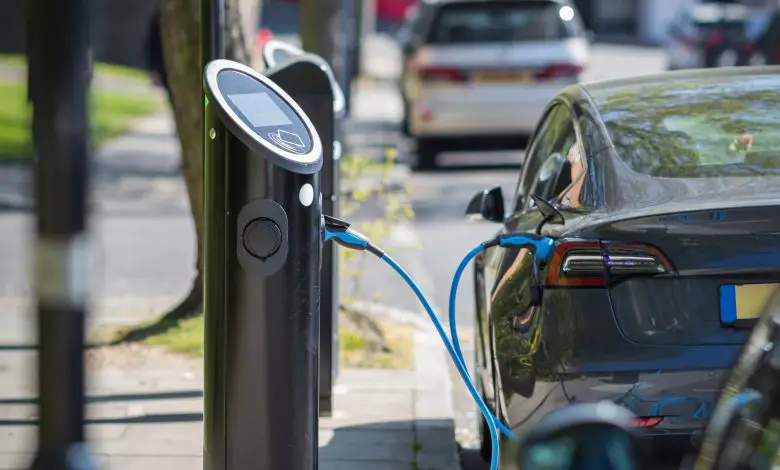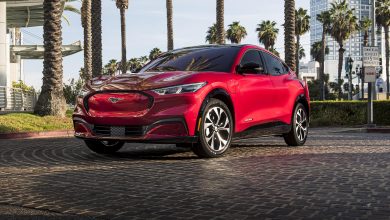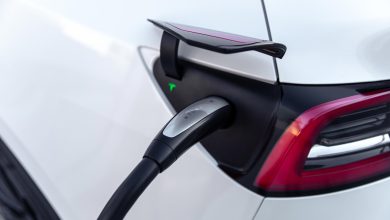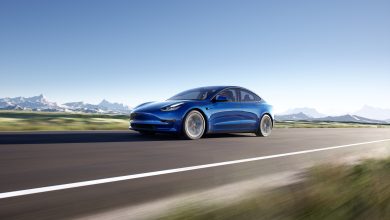
Electric vehicles in the UK are currently exempt from Vehicle Excise Duty (VED), a tax levied on vehicles that ply UK roads. However, that tax holiday will come to an end in April 2025. This was revealed on Thursday, November 17 2022 by the UK finance minister, Jeremy Hunt during his Autumn Statement.
According to Mr. Hunt, “The Office for Budget Responsibility (OBR) projects that by 2025, half of the new vehicles will be electric. To ensure a fairer motoring tax system, I have decided that from then, exemption of electric vehicles from excise duty will be scrapped.”
The rates will differ depending on the type of vehicle. The new plan unveiled by Mr. Hunt shows that electric vehicles registered after April 2025 will pay £10 in the first year (which is the lowest VED) and subsequently move up to the standard £165. Likewise, EVs first registered after April 2017 will start paying the standard rate.
The tax holiday has been one of the incentives European and American governments have used to influence EV adoption. Therefore, there were concerns that Mr. Hunt’s plan may negatively impact EV adoption. However, the RAC motoring group dispelled the fears, saying it was unlikely that the change will lead to a drop in EV demand.
The future of battery-electric vehicle sales in the UK
Since 2019, the sale of battery-powered vehicles has steadily risen over plug-in hybrid alternatives. In 2021, nearly 200,000 all-electric vehicles were sold in the UK with about 110,000 plug-in hybrids. Regardless of the declining incentives on electric vehicles, the chancellor said company car tax rates will remain low for EVs compared to traditional internal combustion engine vehicles.
Speaking in support of the removal of tax holidays on EVs, Nicholas Lyes, the RAC head of policy said, “It is fair for the government, after years of tax holiday, to get electric vehicle owners to contribute to the upkeep of major roads from 2025. It is unlikely that vehicle excise duty rates will be the major reason influencing vehicle choice. Therefore, the tax change should not affect the demand for electric vehicles.”
The Local Government Association supported the move to introduce a tax on electric vehicles. The association said although electric vehicles have a less harmful impact on the environment, they still contribute to congestion and wear on the roads.
David Renard, the transport spokesperson of the association said “It is fair for the drivers to contribute towards these extra costs as well as support investment in lower carbon alternatives like walking, cycling, buses, and public transport.”
The AA (formerly The Automobile Association) and other EV makers faulted the new policy. According to Edmund King, the AA president, the introduction of a tax on EVs “may delay the ecological profits and stall the introduction of electric vehicles to the second-hand car market. It is unfortunate that the chancellor’s electric vehicle taxation will blur the need to switch to EV.”
Kia shared this sentiment saying the introduction of tax contradicts UK’s “net-zero ambitions”. Kia sells fully electric and hybrid cars in the UK.
Nissan, the brand behind the Leaf electric vehicle, said it is worried that the new tax regime may negatively affect the market but pledges to continue working with the UK government to “tackle the low number of public charging stations which is a barrier to EV adoption.”
Nevertheless, EV drivers will still avoid paying for fuel duty which is one of the biggest motoring taxes. They will also enjoy liberal tax treatment.
The declining incentives for would-be EV buyers
With deteriorating revenue and the UK’s inflation rate rising to a 41-year high of 11.1%, the government is looking for ways to boost tax revenues from motorists. The move was necessitated by the falling revenue from fuel duty as more drivers make the switch to electric vehicles.
By 2025, the OBR projects that there will be 2 million EVs on UK roads. With the removal of the tax holiday on EVs, the government hopes to raise £515 million in 2025. That figure is projected to grow to £985 million the following year and hit £1.6 billion by 2027.
Luxury car owners defined as vehicles with a list price of over £40,000 are expected to pay an additional £355 annually. That will push their total tax to £520. The tax will apply from the second year to the sixth year of their vehicle’s lifespan.
Although the cost of EVs is expected to fall as soon as the cost of battery start to decline, most EVs in the market are currently priced at over £40,000. Therefore, most new EV users will likely pay the additional tax.
A few months ago, the UK government scrapped the plug-in car grant that offered motorists up to £5,000 in rebate for the purchase of an electric car. The removal of the tax holiday may be the last deciding factor that may discourage would-be EV owners from making that transition.
The reason is that EVs are still far more expensive than internal combustion engine equivalents. In addition to that, the rising energy bill is further slimming the merits of EVs. The UK has earlier announced that the sale of new gasoline-powered vehicles will be banned in the country from 2030.
UK drivers support a new tax regime
Ralph Palmer of the lobby group Transport & Environment called the UK government’s proposed tax on EVs an “own goal” because it creates a wider tax differential between EVs and ICEs. Palmer believes the move has the potential of reversing “the progress the UK has made on electrification.”
While oppositions of the chancellor’s new tax agree that EV drivers should contribute to infrastructure, they believe it may be time to think of a new tax law. In February, a committee of MPs recommended that the government should think about “road pricing”, where tax would depend on the distance driven, congestion, and the type of vehicle. The idea was unpopular at that time.
However, RAC now has reasons to believe that more drivers favor the principle of “the more you drive, the more tax you pay”. Interestingly, Hunt’s speech did not talk about the fate of fuel duty in 2023.
Fuel duty which makes up a significant amount of the price paid for diesel and petrol on forecourts was planned to grow annually but was frozen in 2011. In March it was slashed for 12 months by 5p to 53p during the Spring Statement. If there is no new freeze when the 5p cut ends, OBR forecasts a 12p rise in fuel duty.




